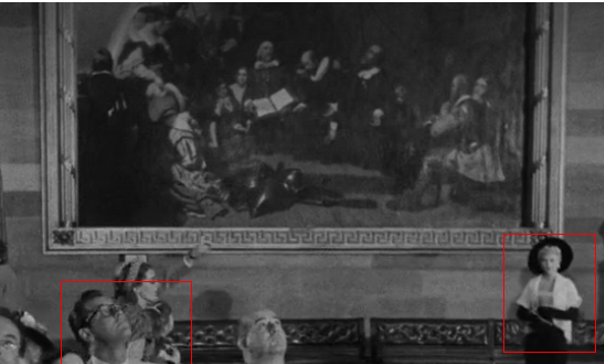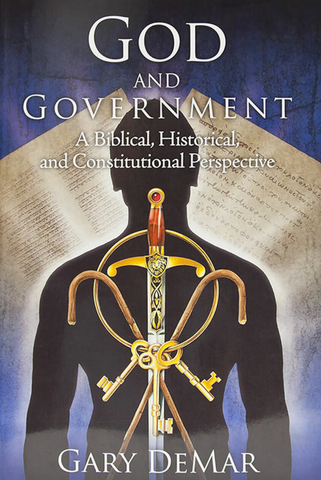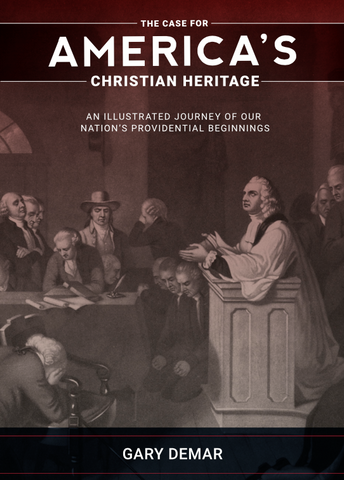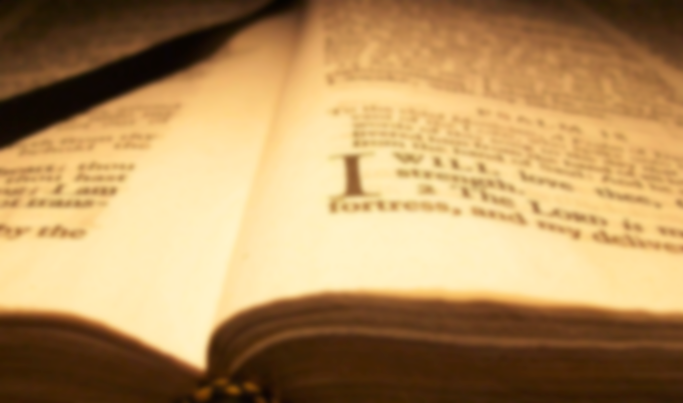This week marks the 405th anniversary of when the Pilgrims and other settlers agreed to the principles known as the Mayflower Compact. “The Mayflower Compact was important because it was the first document to establish self-government in the New World. It remained active until 1691 when Plymouth Colony became part of Massachusetts Bay Colony,” explained History.com.
I suspect that if the Scofield Reference Bible had been around in the seventeenth century, there never would have been a westward migration of Christians to build what has become known as “a city on a hill.” The 41 Pilgrims who sailed on the Mayflower in 1620 carried the Geneva Bible with them, and it was the primary Bible used during their voyage and the drafting of the Mayflower Compact signed on November 20, 1620. Robert Weir’s “The Embarkation of the Pilgrims” shows Elder William Brewster holding a copy of the Geneva Bible. If you’ve seen the 1950 film Born Yesterday, you may have seen William Holden and Judy Holliday passing by the painting during their visit to the U.S. Capitol Rotunda in Washington, D.C.

There was no talk about Satan ruling the world, a call to await a “rapture” of the church, a prophetic parenthesis, or talk about Armageddon. It was all about the advance of God’s kingdom. They believed in a covenantal approach to history whereby future generations would “take the Kingdom of God to all the earth” — this is the important part — “as long as this earth remains.” These concepts came directly from the notes of the Geneva Bible with its kingdom-advancing approach:
[The Geneva Bible] provided much of the genius and inspiration which carried those courageous and faithful souls through their trials, and provided the spiritual, intellectual and legal basis for establishment and flourishing of the colonies. Thus, it became the foundation for establishment of the American Nation.[1]
Government meant more than politics: self-government under God first, then family, church, and civil governments.[2]

God and Government
With a fresh new look, more images, an extensive subject and scripture index, and an updated bibliography, God and Government is ready to prepare a whole new generation to take on the political and religious battles confronting Christians today. May it be used in a new awakening of Christians in America—not just to inform minds, but to stimulate action and secure a better tomorrow for our posterity.
Buy NowGod and governments is the best way to explain what they had envisioned. Even after the 1607 settlement, the Geneva Bible was being used to encourage the colonists from afar in the preparation of later waves of English immigration for the same purposes:
Considerable literature was put out and numerous sermons were preached in London, in the interest of the colony in Virginia, and much of this, at least—practically all, in fact that we have been able to examine—was provided by men, who used the Geneva Bible, presumably Puritans. The Good Speed to Virginia,[3] written by Robert Gray, in the interest of the enterprise, was published in London, in 1609, and he quotes from the Geneva Bible. Several sermons were preached before the Virginia Company in London, for which service they chose freely, if not uniformly, Puritans. Perhaps the first such sermon was delivered at White Chapel on April 25, 1609, by the Rev. William Symonds, the minister of Saint Saviours in Southwark. He used the Geneva Bible, as his Scripture quotations prove.[4]
What was uniformly true in Virginia in 1607 was equally true of the Plymouth colony in 1620. Like the earlier Jamestown settlers, the Pilgrims who had first gone to the Netherlands for refuge, came to the new world with the Geneva Bible in hand.
The Mayflower Compact states that they undertook the voyage “for the Glory of God and advancement of the Christian Faith.” This included a cultural application of the Bible. They stated: “[We] Covenant and Combine ourselves together into a Civil Body Politic, for our better ordering and preservation and furtherance of the ends aforesaid; and by virtue hereof to enact, constitute and frame such just and equal Laws, Ordinances, Acts, Constitutions and Offices, from time to time, as shall be thought most meet and convenient for the general good of the Colony, unto which we promise all due submission and obedience.” They were not end-time system builders.
In his 1630 Model of Christian Charity, John Winthrop (1577/8-1649) offered the following exhortation to those aboard the Arbella as they were about to join the existing Massachusetts Bay Colony:
The Lord will be our God, and delight to dwell among us, as His own people, and will command a blessing upon us in all our ways, so that we shall see much more of His wisdom, power, goodness and truth, than formerly we have been acquainted with. We shall find that the God of Israel is among us, when ten of us shall be able to resist a thousand of our enemies; when He shall make us a praise and glory that men shall say of succeeding plantations, “may the Lord make it like that of New England.” For we must consider that we shall be as a city upon a hill. The eyes of all people are upon us.[5]

The Case for America's Christian Heritage
There’s much work before us to reset the foundation stones of a firm reliance on Divine Providence. We need to heed the words of Benjamin Franklin who quoted Psalm 127:1 during the drafting process of the Constitution: “except the Lord build the house they labor in vain that build it,” and “that without His concurring aid we shall succeed in this political building no better, than the Builders of Babel.” The principles that were true and necessary centuries ago for building nations are equally true and necessary today.
Buy NowIn his Of Plymouth Plantation, a first-hand account of the colony, Bradford recounts the torturous history that brought them to this new world, “Satan hath raised, maintained and continued against the Saints, from time to time, in one sort or other. Sometimes by bloody death and cruel torments; other whiles imprisonments, banishments and other hard usages; as being loath his kingdom should go down, the truth prevail and the churches of God revert to their ancient purity and recover their primitive order, liberty and beauty.”[6] Bradford never considered that these external adversities were signs of an eschatological end. While he never dismissed the historical realities that stared him in the face, he did believe that a faithful and active church, under God’s providential government, could beat them back.
This stated optimism changed after 1660, but to that point, almost no one was speaking of an imminent return of Jesus in the form of a cataclysmic end-time event. Historian Harry S. Stout writes:
Throughout the colonial period, ministers rarely preached specifically on millennial prophecies pointing to the end of time, and when they did it was generally in the most undogmatic and speculative of terms. For the most part, they did not base their preaching on the assumption that history would stop tomorrow, and in this respect they differed radically from popular millennarian movements in Europe and post-Revolutionary America whose plans of action were governed exclusively by apocalyptic considerations.[7]
[1] http://www.reformedreader.org/gbn/en.htm
[2] Louis B. Wright, The Cultural Life of the American Colonies: 1607-1763 (New York: Harper & Brothers, 1957) and Leland Ryken, Worldly Saints: The Puritans as They Really Were (Grand Rapids, MI: Zondervan, 1986).
[3] The actual title is A Good Speed to Virginia (London, 1609).
[4] P. Marion Simms, The Bible in America: Versions that Have Played Their Part in the Making of the Republic (New York: Wilson-Erickson, 1936), 75-76.
[5] John Winthrop, “Model of Christian Charity” (1630): http://religiousfreedom.lib.virginia.edu/sacred/charity.html
[6] William Bradford, Of Plymouth Plantation: 1620-1647, ed. Samuel Eliot Morison with notes and introduction (New York: Alfred A. Knopf, 1970), 3.
[7] Harry S. Stout, The New England Soul: Preaching and Religious Culture in Colonial New England (New York: Oxford University Press, 1986), 8.

